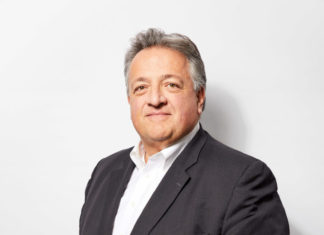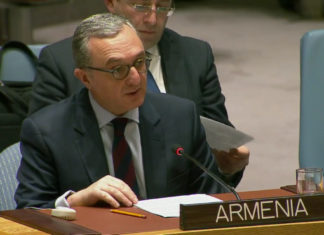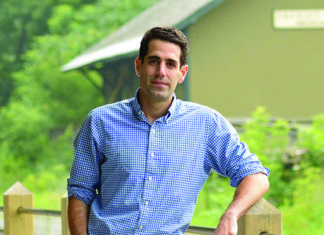By Aram Arkun
Mirror-Spectator Staff
LOS ANGELES — The struggle for justice concerning the Armenian Genocide has taken many forms. Armenians have tried to use academia, the media, legislation and diplomacy, protests and even, briefly, violence in this struggle. Until recently international political and scholarly recognition of the Armenian Genocide’s very existence was the primary goal, but with this seemingly largely accomplished, despite some important exceptions, Armenian efforts have turned to the issue of compensation and land. American and international courts have furnished new arenas to pursue these efforts. The California-based lawyer Vartkes Yeghiayan has been the most active single individual in initiating lawsuits for compensation to Genocide victims and their descendants. Most recently, after a series of suits against insurance companies withholding payments to the heirs of Armenian victims, he filed suit directly against the Republic of Turkey and two Turkish banks concerning Armenian-owned land now either near or part of an airbase used by the United States in Incirlik, Turkey.
This airbase, seven miles east of the city of Adana in southeastern Turkey, has played an important role in supporting the US wars in Iraq and Afghanistan. Its construction began in 1951 and was completed in 1954 as part of US Cold War efforts. Its strategic location turned it into a primary host for U2 spy missions into the Soviet Union and for the 1958 US intervention in Lebanon. It also has served as a hub for US humanitarian aid to Turkey. The US operates there as part of NATO. Nuclear bombs are stored at the base. More mundanely, but pertinent for the lawsuit, large American corporations like Baskin- Robbins, Taco Bell and Pizza Hut operate on the territory of the base. The properties on which the base lies were entrusted to Ziraat Bank from 1915 to 1923, and to the Central Bank of Turkey thereafter.
The three Armenian-American plaintiffs — Rita Mahdessian, Alex Bakalian and Anais Haroutunian — are represented by the Yeghiayan Law Firm, together with Los Angeles attorneys Kathryn Lee Boyd and David Schwarcz of Todd, Ferentz, Schwarcz & Rimberg. Michael Bazyler from the Chapman University School of Law, a specialist on genocide law and restitution, is serving as a consultant. The three plaintiffs, acting on behalf of their respective relatives and families, have deeds and documents proving that their grandparents owned part of the land of the base. The lawsuit, filed on December 15, 2010, asks for “fair market rents and other relief” for roughly 122.5 acres of property estimated to be worth $63.9 million based on data from the US Department of Defense. Roughly $100 million is sought as compensation.
One of the plaintiffs in particular, Mahdessian, is Yeghiayan’s wife, adding no doubt an additional personal element to the suit, though Yeghiayan did not initiate it for this reason. Yeghiayan said in a recent interview, “Many survivors from Incirlik found me. We had about 14 property deeds and we have another 16 deeds of other people who want to join the lawsuit but are still negotiating conditions. In almost every property deed they mention the names of neighbors, three out of four of which are Armenians. So there are a lot more Armenians for whom we are looking. I put ads in papers to find them but am still awaiting further contacts.”
Yeghiayan provided additional information about the background of the plaintiffs. In his words, “plaintiff Alex Bakalian is a resident of Washington, DC, and lawful heir of three relatives, each of whom owned property in Turkey. Bakalian’s first relative is his paternal grandfather, Dikran Bakalian, who was born in 1868 in Adana and died June 1950 in Beirut, Lebanon. Dikran Bakalian and his family were forced to flee in 1921, leaving behind all their possessions and properties. Bakalian’s second relative is his paternal grandmother, Kalina Hatun (Gulenia) Shamassian. Born in 1892 in Adana, she married Dikran Bakalian in 1903. She died in Beirut, Lebanon, in 1978. Kalina Hatun (Gulenia) Shamassian’s only surviving son, Guiragos Bakalian, currently lives in Beirut, Lebanon, and Bakalian is his nephew. Bakalian’s third relative is Ahsapet Shamassian (born Bouldoukian), the sister-in-law of his paternal grandmother. She was born in Adana, married Hovsep Shamassian (the brother of Kalina Hatun (Gulenia) Shamassian), and eventually settled in Damascus, Syria.”









